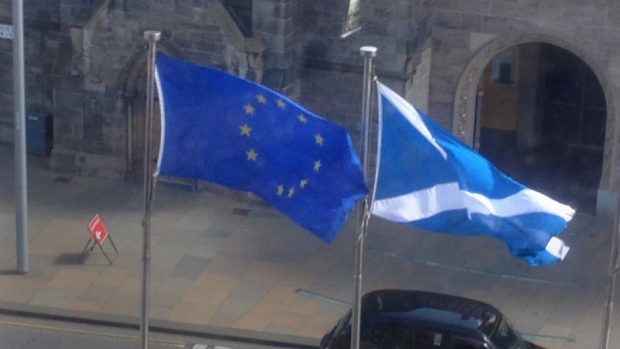Small and medium-sized enterprises (SMEs) across Scotland are clear about what they want from Brexit but don’t know how to prepare for life outside the EU, according to a new study.
SMEs – often described as the engine room of the economy – told researchers negotiating access to the EU single market and trade deals with non-EU countries should be the UK Government’s main priorities following June’s shock Brexit vote.
Nearly half of the firms polled (48%) in PwC’s UK-wide survey of 566 SMEs, including 51 north of the border, expected business costs to rise and 36% said they were putting recruitment on hold.
Trade deals and market access arrangements were widely seen as more important than immigration quotas or environmental legislation and carbon emission targets.
Just under one-fifth (18%) of firms said they had the right level of management information to help them fully measure and predict the impact of Brexit on their business.
PwC’s findings in Scotland largely mirrored the rest of the UK, with a few exceptions.
Two-thirds (66%) of Scottish firms said liquidity within UK financial markets was a major concern, compared to 52% at a UK level.
Scottish firms were “much less likely” to make capital investments – only 24% of them were ready to spend, compared with 15% across Britain.
And just 22% of SMEs north of the border had plans in place to drive growth in light of the EU referendum, compared with 38% around the UK.
Scots businesses were also more likely to want EU savings ploughed into transport infrastructure than digital infrastructure improvements.
Germany was the top priority market for 59% of Scottish SMEs, followed by France and Ireland.
Nearly two-fifths (39%) of firms said the government should prioritise support for exporters looking to trade outside the EU.
Peter Kelly, senior finance partner for the regions, PwC, said: “Our survey paints a picture of SMEs largely united in urging government to maintain the status-quo in terms of access to the single market, to open up new markets and to support companies as they realign export activities.
“History has taught us that UK business is adaptable and innovative when confronted with new challenges and opportunities.
“It is precisely this adaptable spirit, combined with foresight and planning which will allow businesses to weather the storm.
“However, the companies themselves are often uncertain of the most appropriate course of action to prepare for a UK outside the EU.
“Much of that uncertainty stems from a lack of confidence in their own decision-making and management information systems.”
He added: “Without a robust plan coupled with clear, accurate management information, SMEs may struggle to remain competitive.”
“The level of confidence in new opportunities in new post-EU markets is encouraging but companies need to have the same level of confidence in their systems to get them there.”
